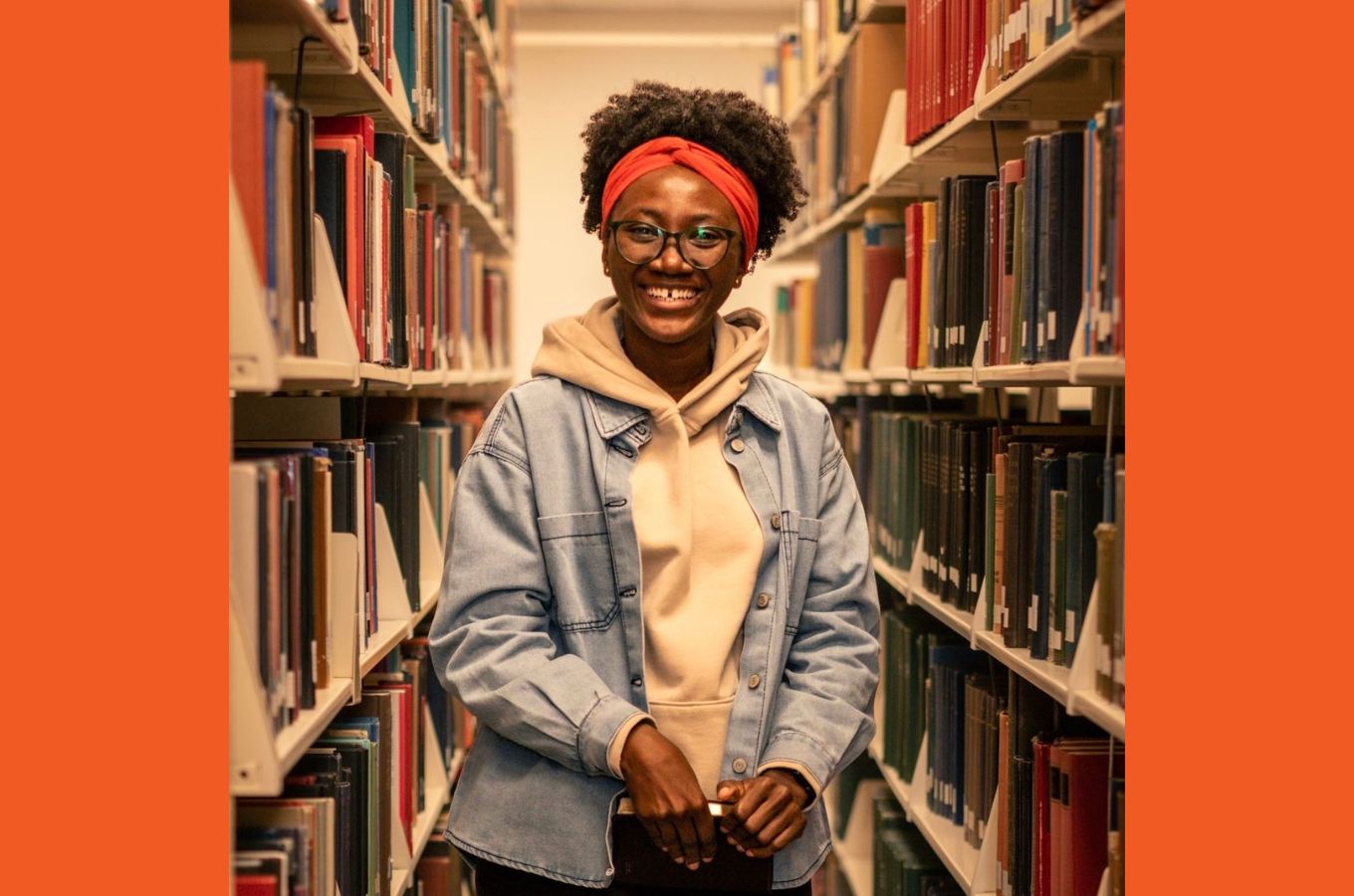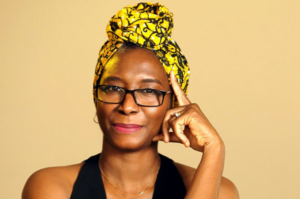
From Nawal El Sadaawi’s Women at Point Zero to Mariama Bâ’s So Long a Letter, African women writers have demonstrated a clear vision of the power of female friendship in patriarchal cultures that tend to oppress women and exclude them from the kinship of human beings. When Sharifa finds Firdaus at her most vulnerable moment and helps her to discover the value of freedom and the possibility of a life beyond the reach of male domination and when Ramatoulaye and Aissatou decide to live on their terms after years of labouring as wives to unfaithful spouses, we anticipate the revolutionary joy with which Ogadinma places her life above marriage and motherhood, in Ukamaka Olisakwe’s Ogadinma. From Egypt to Senegal to Nigeria, the journeys of these characters represent the progressive movement of African women towards a future of complete independence. Like her predecessors, Tryphena Yeboah celebrates the uncommon friendship of oppressed women in her short story, “The Dishwashing Women,” which won a 2024 Pushcart and has been shortlisted for the 2024 Caine Prize for African Writing. The violence Esiha and Nkwa-daa endures is complicated by the forces of patriarchy, capitalism, colonialism, and racism, a lethal combination that powers novels like Bassie Head’s When Rain Clouds Gather and Tsitsi Dangarembga’s Nervous Condition. What can two broken dishwashing women do to fight back the man who exploits their time and talent, rapes their daughters and considers them less than human? What they planned to do was powerful, even if they didn’t achieve it. But what endures about these women is that they lived and shared their anguish with joy. By letting us experience these women as human beings capable of feeling joy and grief, pride and shame, excitement and exhaustion, Yeboah, a Ghanaian writer and associate professor of English and director of creative writing at Tennessee Wesleyan University, reminds us to acknowledge humanity of small lives and “the ordinariness of living.”
***
Darlington Chibueze Anuonye
“The Dishwashing Women” is more than what I might say it is. A short story by convention, but one that narrates a long history of motherhood and servitude. A story about loss and grieving that, however, offers an enduring vision of friendship. Esiha and Nkwa-daa cast a small shadow. But inside, they are so assured of their place in the world that they nurse the dream of upturning the lives of their employer, the diplomat family, whose oppression is more felt and seen. How did you imagine these ordinary women of extraordinary character?
Tryphena Yeboah
My goodness, Darlington! I’m always fascinated when people share their interpretations of my work, and what you’ve shared here is so thoughtful and insightful. I’m grateful that you read the story with an eye for its dominant themes but also its subtleties. I don’t believe I’ve said this before, but this story is very much inspired by my late mother-in-law, Esther, who was one of the most hardworking women I knew. Esther worked as a nanny for a diplomat’s family in Ghana and she would tell me stories about working for them. They were mostly funny stories but once she told me that she was cooking for them and cleaning their home, in addition to working as a nanny. She wasn’t sure how it happened. She just found herself responsible for these additional tasks and there was no conversation about a change in her compensation. We talked about how unfair it was but left it at that. I didn’t think too much of it at the time. I never even thought I’d write about it. I started this story simply wanting to write about women and work, and it completely took a life on its own, very much shaped by the conversation with Esther, which I didn’t know I remembered until I started writing. The ordinariness of things, of living, is an important subject to me because well, it is all I know, and I think it is interesting to dissect that. I’m curious about complicating what is so familiar to us we wouldn’t care to give it a second thought. It is almost as if I want the reader to stop and pay attention to what is and isn’t there. Esther was ordinary in how she presented herself, in how she lived her life, but she was also perceptive, strong-willed, and assured of who she was, and you wouldn’t know that from just looking at her. There are elements of surprise and mystery in there that excite me.
Darlington Chibueze Anuonye
The servitude of these women makes me wonder about how much is lost in silence. Is there a better way to describe exploitation without naming it? Marx would have been enraged by the sheer capitalism of the diplomats and perhaps charged the dishwashers to protest. Imagine the condition under which the women worked: “they lived in a small kitchen inside a big,” although there are “six empty rooms” in the mansion. It seems oppression, as Marx suggested, is most audaciously calcified by class.
Tryphena Yeboah
The easiest way to answer this is by admission of my own fears, which, very often, are reflected in my characters. Without meaning to, even as I write, I’m also answering the question, “how would I respond in this situation?” Perhaps it would make for a much better story to explore what it would look like for my characters to do what I do not have the courage to do—I think I attempt this in “Any Good Child.” This reminds me of conversations about separating the art from the artist. I’m the first culprit on that list, but I can’t help that there are traces of who I am on the page. Sometimes I fear I’m writing the same story in a hundred different ways, but I suppose we all do have our obsessions, maybe? But yes, I didn’t write an empowering and radical scene because I do not always feel powerful. Hence there’s no protest, no confrontation, which is of course, what we desperately wish for them to do, to demand fairness. But even beyond my conflict-averse persona, I think it’s important to address the question of stakes. That while their silence is no doubt costly for them, their speaking up is costly, too. There’s the dynamic of class, privilege, power, and who is well-positioned to do and say and respond in a particular manner. These grey areas are often hard for me to come to terms with, and so what this story allows, I hope, is for the space to be utterly human, which undoubtedly involves a great deal of weakness and failure, of cruelty and cowardice. The real, unglamorous and messy ways we fail to do the right thing because we’re scared or choose to endure a treatment because it seems the most practical and surviving thing to do, or make a decision that serves us and wounds others. To create a world of right and wrong is easy and predictable, to leave the reader clearly feeling one way or the other is satisfying, but those kinds of stories do not ask us to think too much, they do not make us uncomfortable or compel us to sit in the unknown and confess our own limitations as readers, as humans. That’s not the kind of stories I’m interested in. I’m curious about ambiguity and complexity, about the intricate and layered ways of being that do not offer us easy, pill-sized answers we can swallow and move on. I hope to keep exploring that unsettling and awkward territory. I don’t know what I’ll find, but I want to make the effort of gesturing toward that place.
Darlington Chibueze Anuonye
You’ve spoken with wisdom and care. I’ve been contemplating the possibility of a racial motivation for the oppression the women endure in the diplomats’ service. While it is not obvious where the diplomats came from, it is possible to imagine that they are not Africans, not only because Samantha, their daughter, did not think of their new location as home, but also because of how they emerge in Adoma’s thought of their response to her daydream of sleeping in one of the empty rooms in the mansion: “She imagined the shocked faces of the master and his wife, how they wouldn’t know what to say because they hadn’t anticipated a day like this would come when somebody they did not—and would not—consider one of them crossed that threshold and made herself feel at home… They would be quick to question: How is it possible that this shy twenty-nine-year-old kinky-haired, soft-eyed, kitchen-bound lady could do this brave, unacceptable thing?” The focus on Adoma’s body is concerning. Are these women also victims of racism?
Tryphena Yeboah
When I came to the United States in 2019, the focus on my body, my skin to be precise, was concerning. I didn’t know I was black until I came here. In Ghana, rarely do you find yourself trapped in the narrative of colour. So, I very quickly learned that there is some obsession with how I look in this country, and with that comes a world of predetermined ideas about who I am, what I like and don’t like, what my values are, what irritates me and what ought to demand my attention, what I ought to write about. I wouldn’t say it was intentional to fixate on Adoma’s body that way, but I did want to capture her from the perspective of the other, to put her under the white gaze, if you will. That is often the first thing one sees—how one looks, out of which, a rather flawed assumption is formed of who they are. Regarding the question of racism, that’s the kind of thing I would love to leave open to the reader to interpret. I will say though that this is my first time writing about race, even if done implicitly. I was particularly mindful of my treatment of its nuances. Because at that intimate level, where there is some trust or expectation of mere human decency, acts of prejudice can be quiet, hidden, sometimes guised as a well-meaning gesture, sometimes unconscious and unintentional. Rage is one emotion that can come from experiencing this, but there’s also confusion, betrayal, hurt, disbelief, and this maddening sense that everything you thought was true is somehow distorted. Imagine carrying all of these emotions, some of them wrestling against each other. Imagine questioning all you thought was true and reliable, how deeply disorienting and frustrating. Again, we’re back to the grey areas, which is a seminal question that drives much of my work.
Darlington Chibueze Anuonye
Esiha and Nkwa-daa remind me of Ramatoulaye and Aissatou in So Long a Letter. After a failed marriage, for Assatou, and a death of an unfaithful spouse, for Ramatoulaye, these women found strength in each other, with Ramatoulaye telling Aissatou: “You have often proved to me the superiority of friendship over love.” Esiha and Nkwa-daa’s friendship becomes their only source of living after the disappearance of a child, for Nkwa-daa, and the departure of another abroad, for Esiha. This is sisterhood. Clenora Hudson-Weems has articulated how empowering the sisterhood ideology is for women in patriarch cultures, given that it offers, unlike the family and community, “a genuine connection between women.” What inspired this marvellous friendship?
Tryphena Yeboah
Oh, I love this question, Darlington! Just last night, I was telling my husband about a seventeen-year long friendship I feel is shifting, not because anything terrible has happened but because we’re simply two different people now than we were in our teens. We’ve gone on to different parts of the world, we’ve learned new ways of thinking and being, we’ve developed new hobbies and experienced moments of grief and joy away from each other, we’ve made new friends. All of the things that have happened to us have shaped the kind of people we are, the kind of friends we are. There’s not one particular friendship that inspired this bond between Esiha and Nkwa-daa; what they have is drawn from my own rich experience of friendships, my celebration of it, my longing for it, my loss of it, and my understanding of the kind of friend I am, and how much I want to keep pouring into the people who fill my life with joy and keep me grounded. For as long as I can remember, my closest friends have always traveled to a different country, or another part of town and I’ve been the one left behind. My first childhood best friend left when I was six or seven and another left when I was in primary school. When I was in junior secondary school, three of my dearest friends travelled at different times. I remember them all, and how each parting felt like such a loss. So, I’ll admit there’s a yearning there, and some anxiety about being abandoned, again. But in the last five years, I’ve been the friend who’s left three places, and with each tearful goodbye, I felt I was leaving a part of myself behind, that while I would still keep these friendships, they would change over time and distance, and I would have very little control over that. I’m currently just settling in a new state; all my friends are either continents or states away. That’s a painful reality for me because I thrive in the intimacy and sacredness of sisterhood. I love my people. I believe the chance to know someone, to grow to trust them, to let them into my world and me theirs, to listen to their stories and to be intentionally present in their lives is truly one of the best gifts I’ve been given.
Darlington Chibueze Anuonye
The experience of truly knowing someone and sharing something valuable with them is priceless. I believe in the miracle and efficacy of friendship, even if the world suggests otherwise. But beyond the beauty of the women’s friendship, I’m moved by the memorable manner in which you render the shared pleasure and burden of the relationship: “To the women, home was never explicitly defined, but they knew they were seen by each other, that they could stretch their hand in the dark and another would reach out to hold it… They were aware of each other’s sighs and lifted spirits, nursed one another when there was a new burn on the hand from a boiling pot or a deep cut on the finger from the endless chopping of carrots or peeling the skin off plantains, and ended each day looking forward to the next.” These are hopeful women labouring in friendship, even if in vain. How do you task language to dignify the lives of suffering, abused people?
Tryphena Yeboah
Oh, I don’t know, Darlington. I haven’t given it much thought, and I suppose it’s because when I’m writing, I’m not really thinking about tasking language for a specific outcome. As a matter of fact, I’m not thinking about a lot of things, certainly not the technical part of the craft. All I know is that regardless of what I’m writing, clarity is important to me. Showing is important to me. So, when I come to the page, I’m only attempting to build a world with its people, provide enough evidence that their lives and circumstances are believable, and portray their experience in real, evocative ways. The scene you’ve quoted is a rather vulnerable one and I suspect all I wanted was to provide intimate portraits of their friendship. It’s not enough to tell the reader that these women are good friends. Good friendship can look like a million things. What’s the shape of this friendship? What makes it good and why should one care? I had to show it, to make up moments where they are indeed taking care of each other, needing and relying on each other, sharing a singular hope for living because of their shared struggles. Alas, I fear I may not have answered your question!
Darlington Chibueze Anuonye
There’s no fear. Esiha and Nkwa-daa have taken all our fears away.
Tryphena Yeboah
Ha! I’m glad you feel that way, and how convenient to let our characters bear the cross!
Darlington Chibueze Anuonye
The narrative of this story is kaleidoscopic. An event, a person, a thing opens repressed memories. First, Amoda’s unexplainable and strange laughter reminds Eisha of Helen, her daughter. Then, in meeting Helen, we also learn of Nkwa-daa’s daughter’s disappearance. Memory propels this story, edifies its past and lightens the language of remembrance. It is good to remember, better to remember well, best to remember empathetically, as Helen does: “And yet, Helen remembered, she is also the woman with so much love in her eyes, so much patience to give, a vessel of flesh that takes on whatever burden is laid on her without so much as a murmur. And of course there was her mother, ready to strike anything that threatened them.” Isn’t it frightening how we sometimes we live in and through memories?
Tryphena Yeboah
It is, and what a wonderful observation this is, thank you! I often joke among my friends that I’m the best person to tell a secret to because I would forget soon enough. Memory is such a tricky thing. Kwame Dawes told me about how unreliable memory can be, that very often how we remember things is not always how they were. That when we look back on an incident, we do not acknowledge that there were particular circumstances for the people involved, and that what we did or didn’t do then were inspired by a specific set of emotions and knowledge at the time. We usually cling to one thing from the experience and, as years go by, all the details and context fade away, and we have this singular piece of evidence that we hammer down on ourselves or others, neglecting everything else. Knowing my tendencies of misremembering, I try to hold my memories lightly. I have a weird relationship with my own memories because I find that I forget the things I want to remember and remember the things I wish to forget. I’m starting to forget the sound of my father’s voice and I have no recording of it anywhere, but I remember some discouraging conversations with other adults in my life. I remember the tone, the words that were said, I remember how they made me feel. I can’t seem to turn the dark side off, but I’m happy there are some good things for the characters to look back on in this story. When you talk about living through memories, I must say I know that quite well. Sometimes almost too well that it feels as if you’re right back in that place, and the past is happening all over again. It can be so palpable you either feel very silly or very crazy. So much of my childhood is a blur because of the awful things that happened. I don’t know how, but my cousin pulls a family album from an old box, and everyone remembers something and I, nothing. I see my face, my smile, but I do not remember wearing the dress, I do not remember half the people in the photo, I do not remember ever having that moment. A memory I keep returning to, perhaps because it is captured on video, is of me surprising Esther. It had been four years since I was in Ghana, and my husband’s mother was one of the first people I wanted to see. In the video, she screams and screams with joy, and holds me. She does not let me go. I remember being in her arms; I remember the feeling of being held by her. It would be the last time she would hold me in that way before her passing last year, and I don’t want to forget. But I’m afraid I might.
Darlington Chibueze Anuonye
I’m so sorry for your loss, Tryphena. May your wonderful and warm memories of Esther endure.
Tryphena Yeboah
Thank you, Darlington.
Darlington Chibueze Anuonye
I will end with a familiar question. Helen’s exilic consciousness is palpable. As someone who lived in Lincoln Nebraska for nearly four years, is it not possible to find Helen in this city? Is it possible that you and Helen share something in common, for I think of Lincoln as a frigidly, insufferably flat city?
Tryphena Yeboah
Helen and I no doubt have a lot in common. I am all the lonely and self-conscious girls in my stories. I am all the rebellious and brave ones, too. We contain multitudes, don’t we, Darlington? Remember how I’m endlessly curious about the grey and intricate parts of the human condition? It’s because I’m full of them, too.
Darlington Chibueze Anuonye
We’re a multitude, Tryphena. It’s been such a delight listening to you.
Tryphena Yeboah
I’ve thoroughly enjoyed this conversation, Darlington. Thank you for letting me think and share about my work in such a personal way.
***









COMMENTS -
Reader Interactions